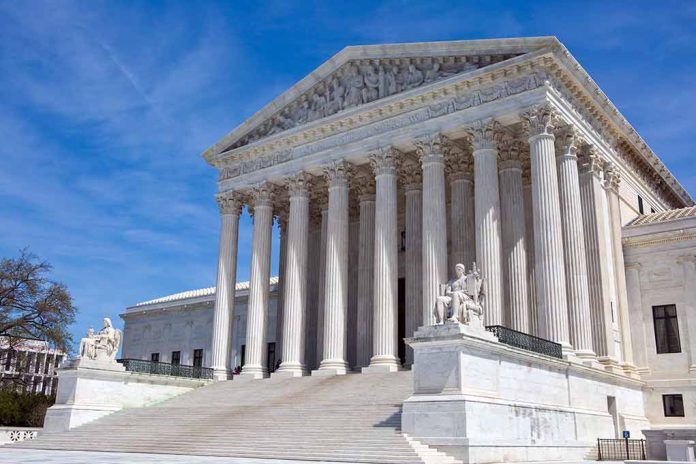
(RepublicanPress.org) – In a rare move, the US Supreme Court is hearing a case, Securities and Exchange Commission v. Jarkesy, that presents three distinct constitutional challenges to the authority of that federal agency. Ordinarily, the court would wait to address each question separately once a conflict emerges between rulings handed down by two or more federal circuit courts.
However, in this instance, the US Court of Appeals for the Fifth Circuit addressed all three legal theories and ruled against the government. That decision has substantially impacted portions of the country’s security laws and created a need for Congress to substantially revise portions of those statutes.
For that reason, the nation’s highest court agreed to hear the case instead of allowing one decision by a split court to impact a federal agency and force Congress to take action. The outcome of this case could impact the SEC and all federal agencies acting under similar circumstances.
US Supreme Court Hears Arguments in Case That Could Limit the SEC
The SEC filed a petition for a writ of certiorari in March. The court granted the government’s request and scheduled oral arguments for November 29. The case stemmed from a 2013 administrative proceeding the SEC brought against George Jarkesy, an investment adviser and hedge fund founder. The commission’s in-house proceedings determined that Jarkesy and his company committed securities fraud and ordered them to pay roughly $700,000 restitution and an additional $300,000 in fines.
Court watchers and opponents of the executive division’s expanding powers have argued for years that the SEC’s special courts deny defendants their constitutionally protected rights to a fair hearing. Many of them point out that the agency’s commissioners get to appoint the administrative judges that ultimately determine the outcome of enforcement actions.
In this instance, Jarkesy’s attorneys presented three legal questions for the justices to consider.
Their first question asks the court to decide whether the statutory provisions that allow the SEC to initiate and ultimately adjudicate enforcement proceedings to assign civil penalties runs counter to the Seventh Amendment’s protection of the “right of a trial by jury” if the “value in controversy [exceeds] twenty dollars.”
Second, under current federal law, the SEC has the option to bring some enforcement actions in an in-house hearing before an administrative judge or in federal court, where the right to a jury applies. Jarkesy’s attorneys argued that allowing the SEC to decide what venue to pursue violated a longstanding common law precedent called the nondelegation doctrine.
Third, Jarkesy’s lawyers argued that the constitution prohibits the two-tiered system currently in place that protects the SEC’s administrative law judges from removal. They pointed to the court’s recent decision in Free Enterprise Fund v. Public Company (2010), which held that Congress impermissibly limited the president’s power to appoint certain federal officials by imposing “multiple” levels of tenure protection.
It remains unclear how SCOTUS might rule in this case. However, experts warn that an adverse ruling for the government could impact other federal agencies and how they handle enforcement proceedings.
Copyright 2023, RepublicanPress.org














